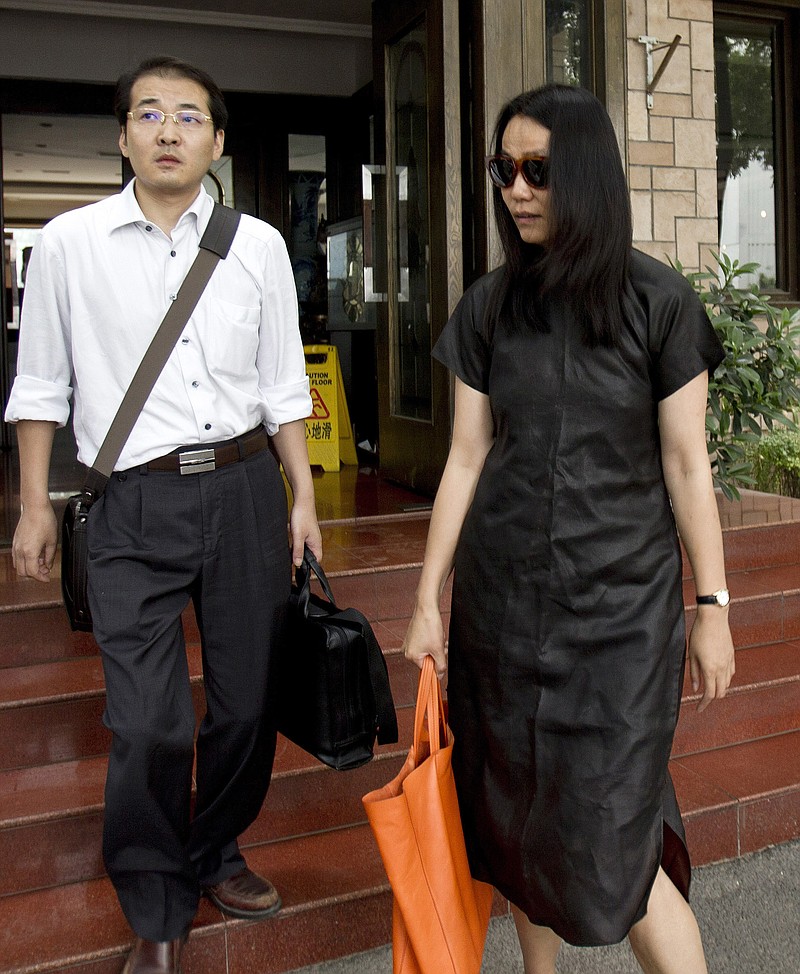BEIJING (AP) - A Chinese lawyer who defended activists and others involved in politically sensitive cases was sentenced to 12 years in prison Thursday on fraud charges, his lawyers said, in what is believed to be the harshest penalty handed down in years against those few willing to take on the ruling Communist Party.
Xia Lin was sentenced Thursday by the Beijing No. 2 Intermediate Court, nearly two years after being detained, lawyer Ding Xikui said.
"We've been striving to defend his innocence," Ding said. "Even one day in prison is too much."
There was no immediate comment from the court. Ding said Xia planned to file an appeal.
Xia's sentencing comes amid a string of recent cases and subversion trials demonstrating the ruling Communist Party's determination to silence independent human rights activists and government critics. But the most those accused received was 7 ½ years.
By comparison, Nobel Peace Prize winner Liu Xiaobo, identified by the party as an existential threat to its rule, is serving an 11-year sentence for subversion.
"The harsh sentence against Xia Lin sends the sternest warning yet to the community of human rights lawyers that they must toe the party line," said Maya Wang, a Hong Kong-based researcher with Human Rights Watch.
Wang said president and party leader Xi Jinping has made clear that, despite its calls for strengthened rule of law, the party intends to use the legal system to enforce its uncontested rule. "Anyone who challenges this aspiration will not be tolerated."
Ding and advocacy group Network of Chinese Human Rights Defenders said the charges against Xia, who was born in 1970, related to money he had borrowed from friends, who asserted they did so freely and had not brought legal complaints against him. He was accused of defaulting on that debt, but no convincing evidence was provided, they said.
"He had indeed borrowed money from people, but it is just normal borrowing and lending money," Ding said.
The Network of Chinese Human Rights Defenders said that Xia was detained on Nov. 8, 2014, as he began preparing to defend Guo Yushan, the head of the Chinese think tank, the Transition Institute. It said Guo had been detained a month early for supporting the Occupy Central pro-democracy movement in the semi-autonomous Chinese region of Hong Kong.
Lacking evidence of fraud, investigators instead focused on Xia's association with government critics, including renowned artist and human rights activist Ai Weiwei, the group said.
"The numerous legal violations, not least the length of time it took to bring Xia to trial, demonstrate the flimsiness of the authorities' case. Xia Lin should be freed on Thursday and compensated for his time in detention," human-right researcher Frances Eve said in a statement.
Xi's campaign against dissent began gathering steam in the summer of 2015, when about 300 activists and lawyers were initially seized in a roundup and questioned before most were released.
But more than a dozen of those detained last year remain in custody, their legal fates still unknown.
___
Associated Press researcher Liu Zheng contributed to this report.
